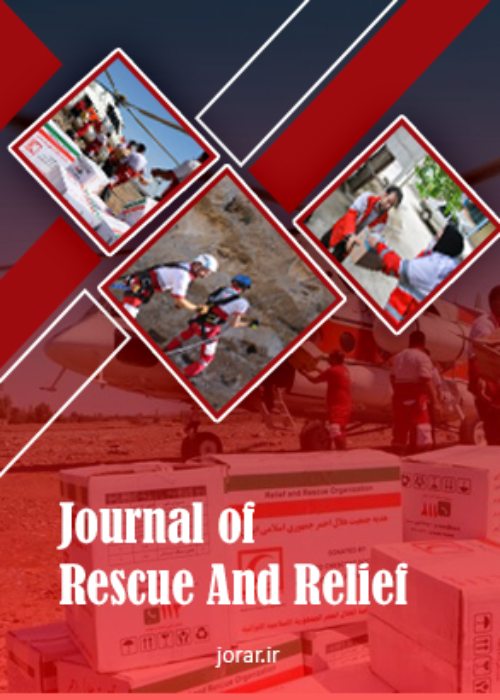Community-based Crisis Management Model Focusing on the Processof Relief and Rescue in Natural Disasters in Iran
The increase in the number of natural disasters has made different societies constantly discover and invent solutions to control the adverse effects of disasters with more emphasis on prevention or minimize them by improving the quality of the rescue process (in the response phase). In the last few decades, the need for social participation in order to manage risks has been developing in the form of community-based activities. This study was conducted to present a community-based crisis management model focusing on the process of relief and rescue in natural disasters in Iran, 2020.
This qualitative study was performed based on the grounded theory method defined by Strauss and Corbin. The statistical population of the study included all crisis management and non-governmental organizations experts in universities, the Crisis Management Organization, general managers of provincial crisis management, and senior managers of the Red Crescent Society. The samples were selected using the purposive and theoretical method of snowball sampling while taking into account the geographical, climatic, cultural, social, and religious diversity of different regions of the country. As a result, the sample size was obtained at 22 people. The required data were collected through a semi-structured interview. In the analysis of qualitative information, open coding, axial coding, and selective coding were used manually).
The results of the study showed that the causal conditions of community-based crisis management included "legal obligation", "strategic planning", "attracting public participation", "forming and developing expert teams", and "acting (prevention, preparedness, needs analysis, planning, and response)"; and contextual conditions consisted of "geographical conditions", "social capacity building", and "creating cohesion and empathy". Moreover, intervening conditions involved "general sensitization", "preparation", and "logistics and equipment"; strategies included "risk management", "human resource management", "training (general and professional)" and "barrier removal"; and the consequences of community-based crisis management consisted of "increasing public awareness in the face of emergencies", "reducing the risk of areas "increasing community resilience", "improving the quality of post-disaster assessment", "accelerating the response process", "determining priorities appropriately", "saving the golden time of rescue", "increasing the number of survivors", "accelerating relief operations" "distributing relief items fairly", "improving the quality of rescue operations", "decreasing the amount of damage", "managing resources and facilities properly", "reducing response costs", "decreasing the adverse psychological effects of the disaster", "organized presence of grassroots groups", "eliminating the shortcomings and completing the performance of the responsible agencies", and "increasing the level of public satisfaction".
Community-based crisis management is a new and effective approach that its implementation has a positive impact on increasing resilience and thus reducing the vulnerability of communities. The proper and successful implementation of the community-based approach requires structural changes, amendment of laws, and development of relevant bylaws. It also needs measures that should be implemented at the national level, in the country's crisis management system, and at the local level.
- حق عضویت دریافتی صرف حمایت از نشریات عضو و نگهداری، تکمیل و توسعه مگیران میشود.
- پرداخت حق اشتراک و دانلود مقالات اجازه بازنشر آن در سایر رسانههای چاپی و دیجیتال را به کاربر نمیدهد.


